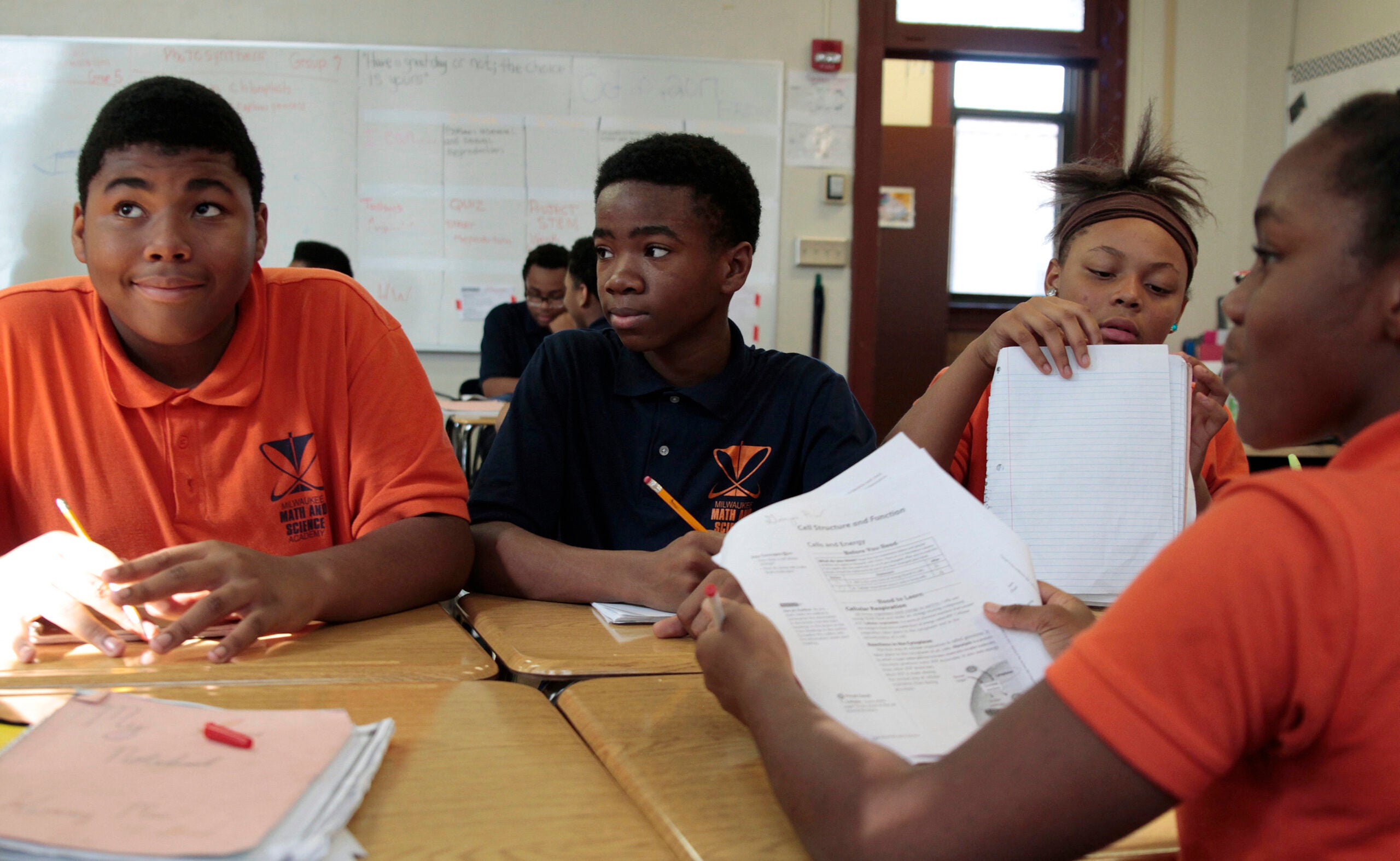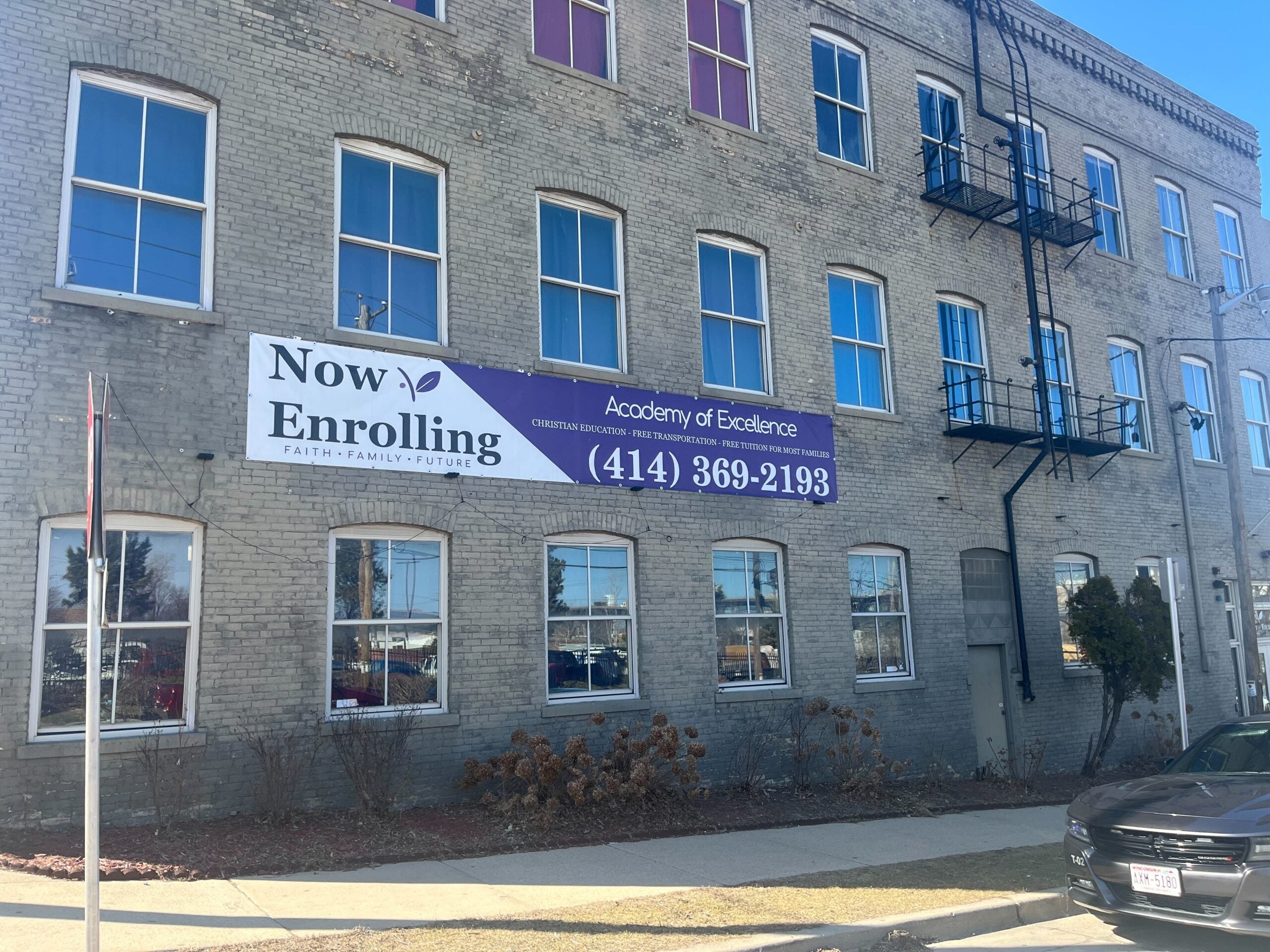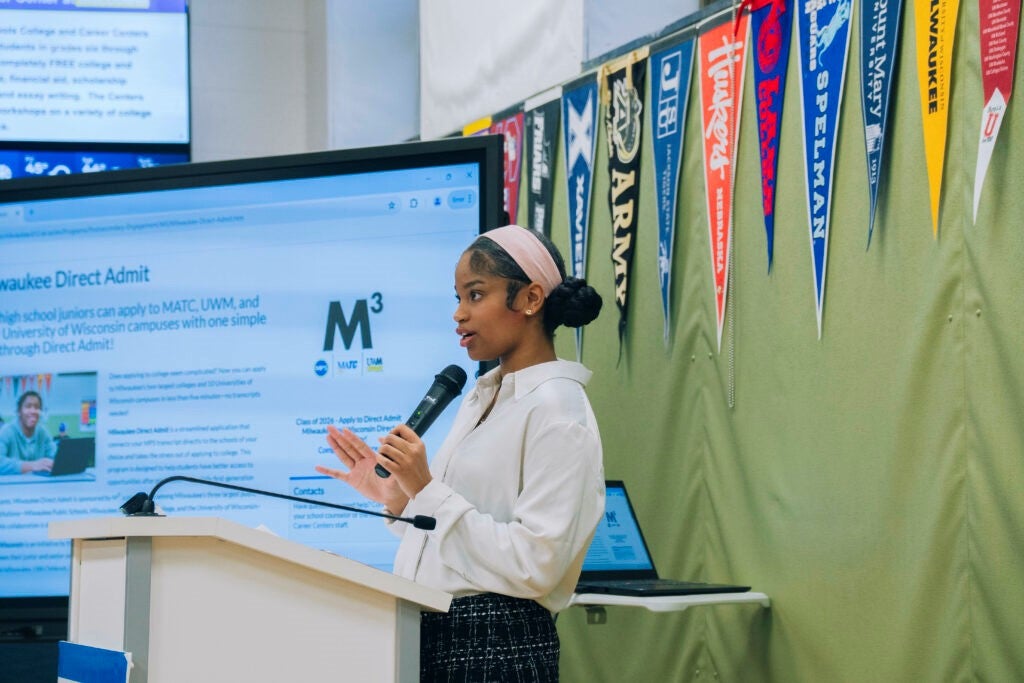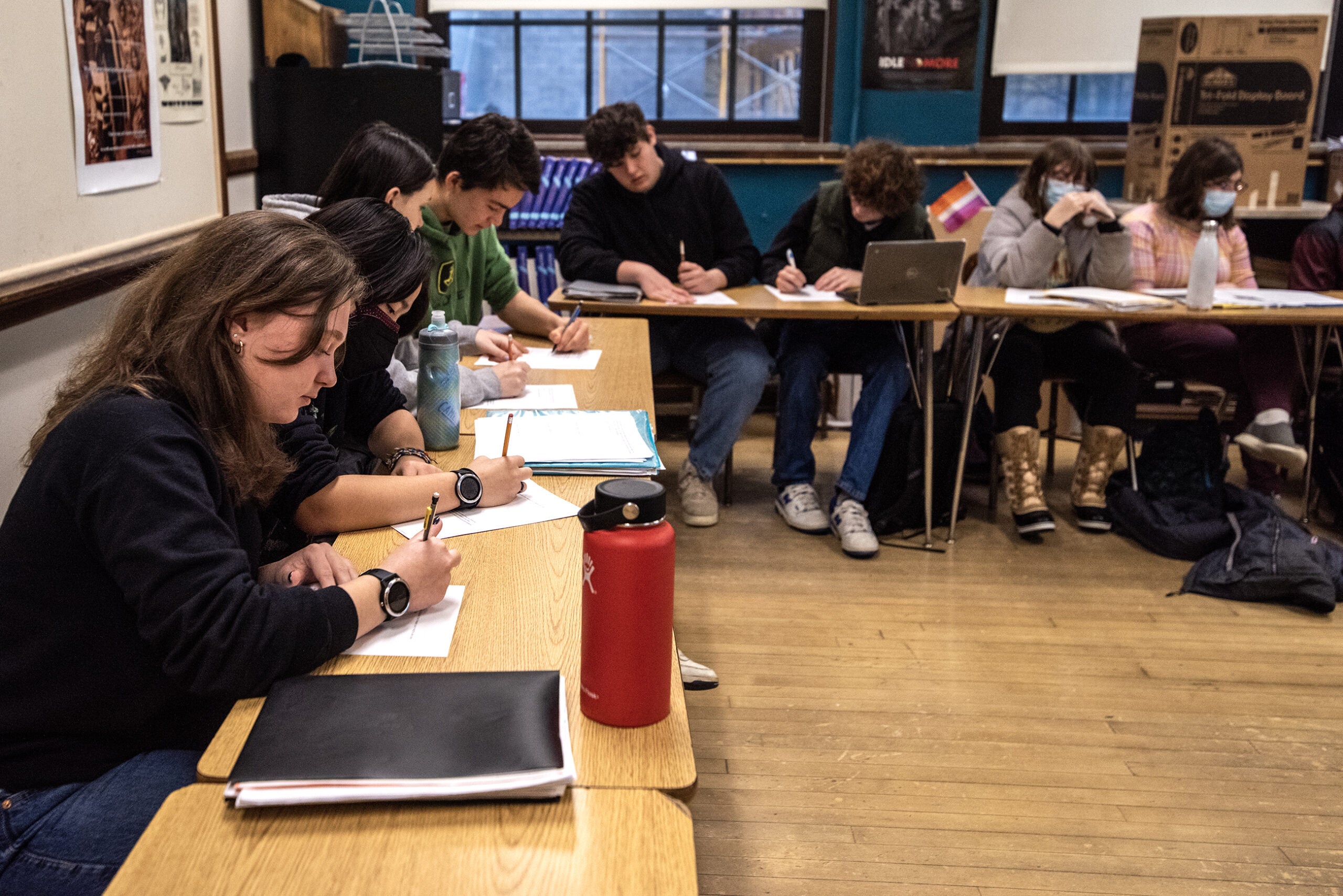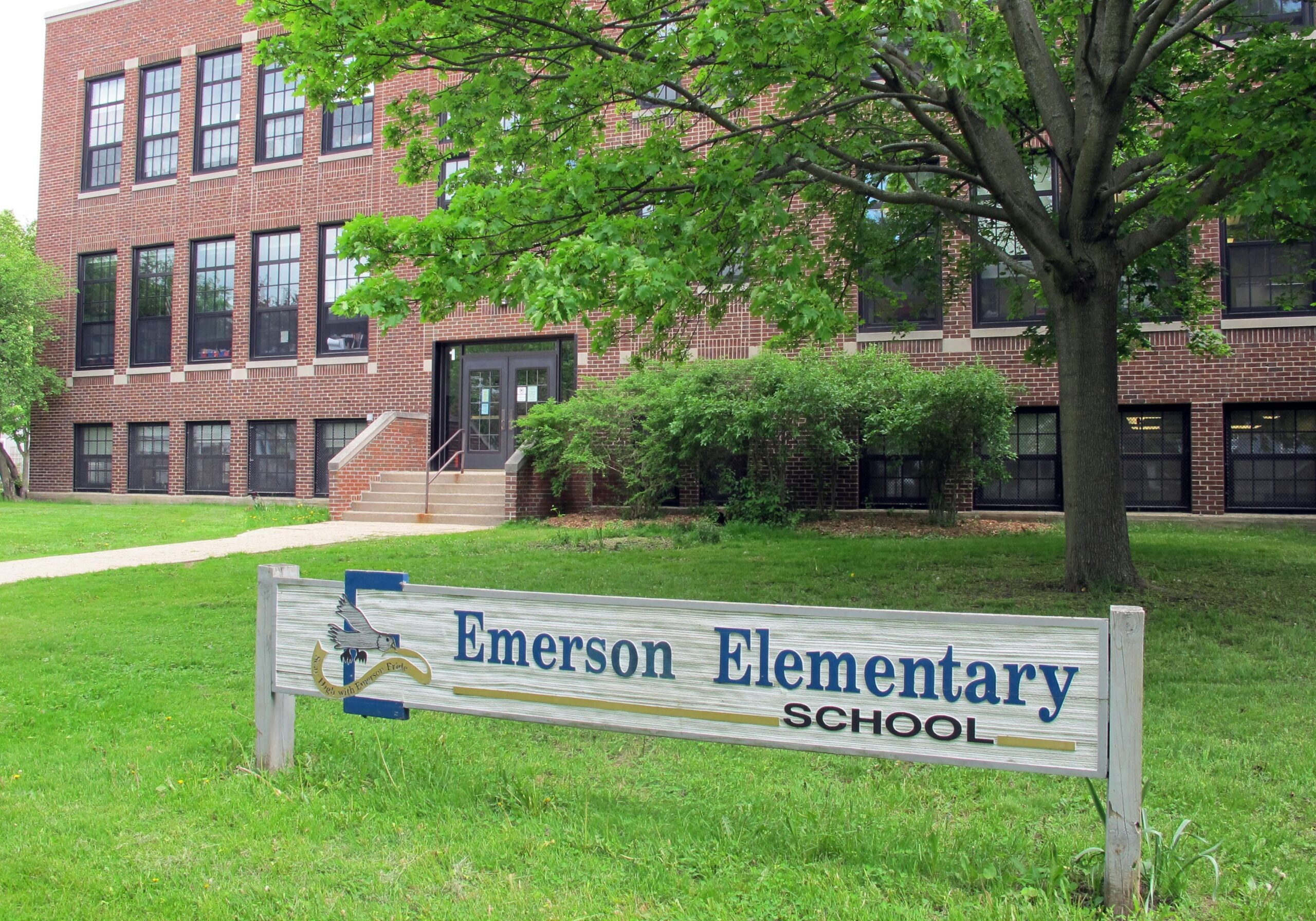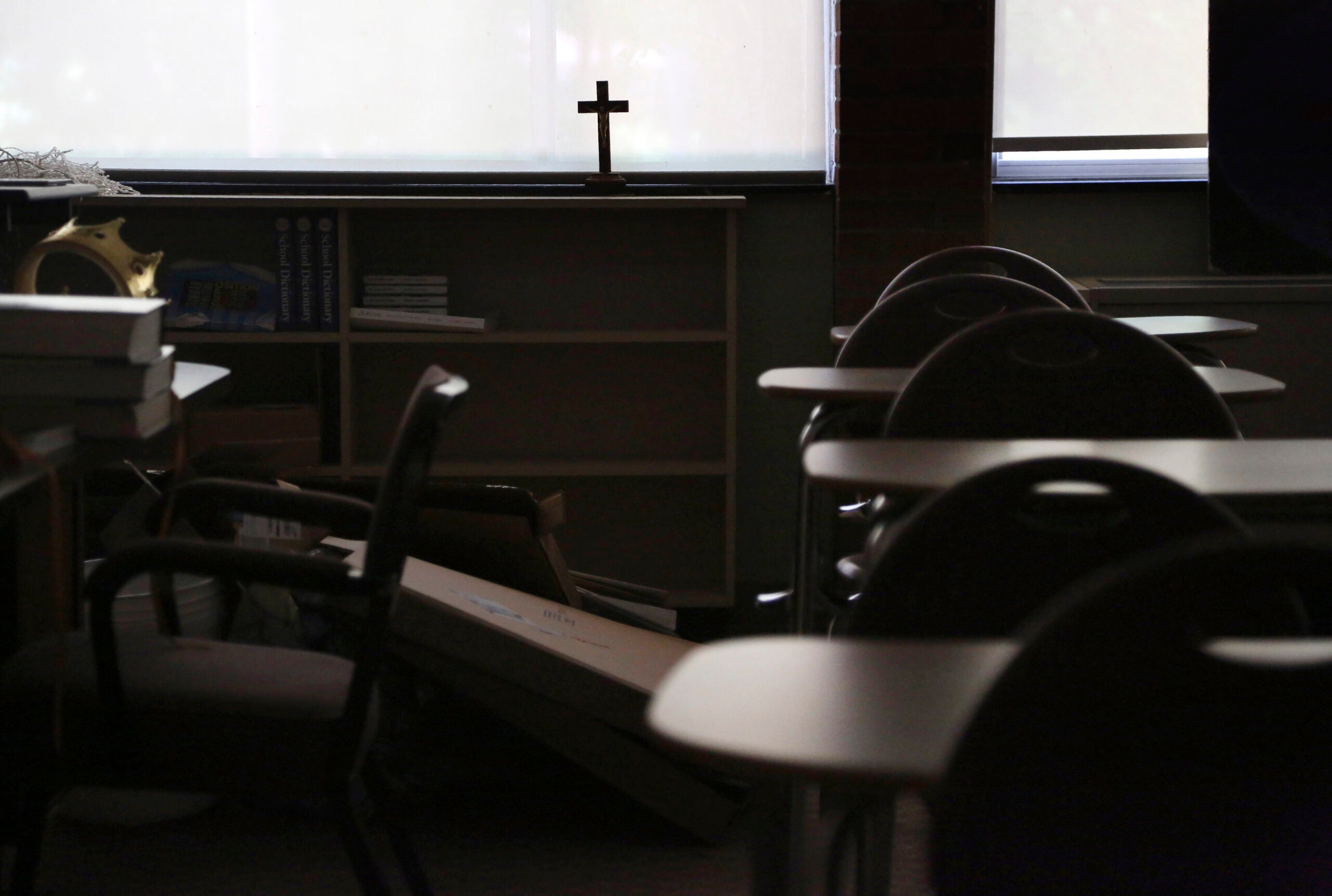The issue of school choice will get a spotlight Tuesday, when Vice President Mike Pence is slated to speak at the Wisconsin state Capitol for National School Choice Week.
In Wisconsin, the school choice program offers publicly-funded tuition vouchers to help students attend private schools.
The day before Pence’s visit, a conservative think tank released its projections of possible economic impacts an expansion to the voucher program could have.
Stay informed on the latest news
Sign up for WPR’s email newsletter.
Will Flanders, the research director at the Wisconsin Institute for Law and Liberty (WILL) and the paper’s author, pointed to research that found students who participated in Milwaukee’s voucher program from third to eighth grade were more likely to graduate from college than their counterparts in public schools.
He looked at the possible economic impacts if students receiving vouchers went from the current nearly 5 percent total enrollment statewide to 10 percent.
“If we reach that 10 percent figure, we could see about $2 billion in both economic, private-sector impact and local tax growth,” Flanders said.
At 20 percent of total enrollment, economic impact could be $3.2 billion over 20 years, according to Flanders’ projections, which cover a 20-year period.
Flanders acknowledged the projections assume all graduates stay in Wisconsin.
Heather DuBois Bourenane, the executive director of the Wisconsin Public Education Network, dismissed Flanders’s projections as conjecture.
“I did not understand the mental gymnastics at work in the piece that was speculating about how many choice kids would end up in college,” she said. “I found it to be very unscientific and speculative.”
DuBois Bourenane said the money spent on voucher programs would be better spent on public schools.
“Even if we did expand the program, we need to invest in the 860,000 kids whose parents choose and wish to send them to public schools,” she said.
State Republicans and Democrats are at odds on the issue of school choice. Gov. Tony Evers called last year to freeze voucher programs. Rep. Jonathan Brostoff, D-Milwaukee, plans to reintroduce a bill Tuesday that would phase out vouchers altogether.
“Students who are currently enrolled in a school through a voucher program would be allowed to continue at their school (until they either left the school or graduated), but no new students would be allowed to enroll under any of the voucher programs currently in place,” wrote Michael Lindvall, Brostoff’s legislative assistant, in an email.
The bill would face an uphill battle in the Republican-controlled Legislature.
So would Republican efforts to expand voucher programs, Assembly Republican leader Robin Vos, R-Rochester, said Monday on WPR’s “The Morning Show.”
“That has zero chance under liberal Democrats,” Vos said.
Wisconsin Public Radio, © Copyright 2025, Board of Regents of the University of Wisconsin System and Wisconsin Educational Communications Board.
